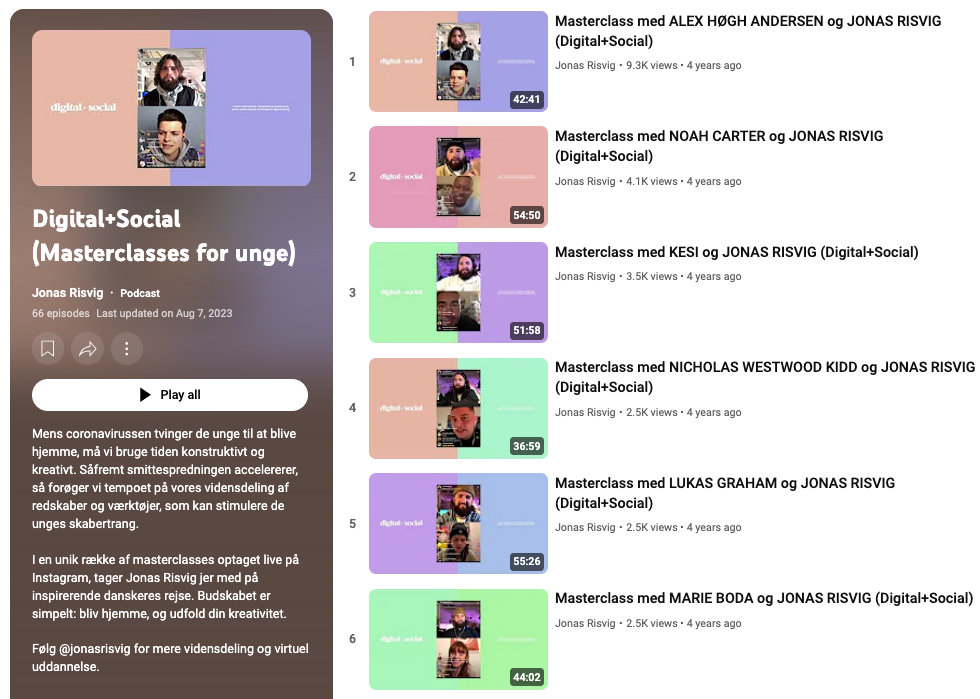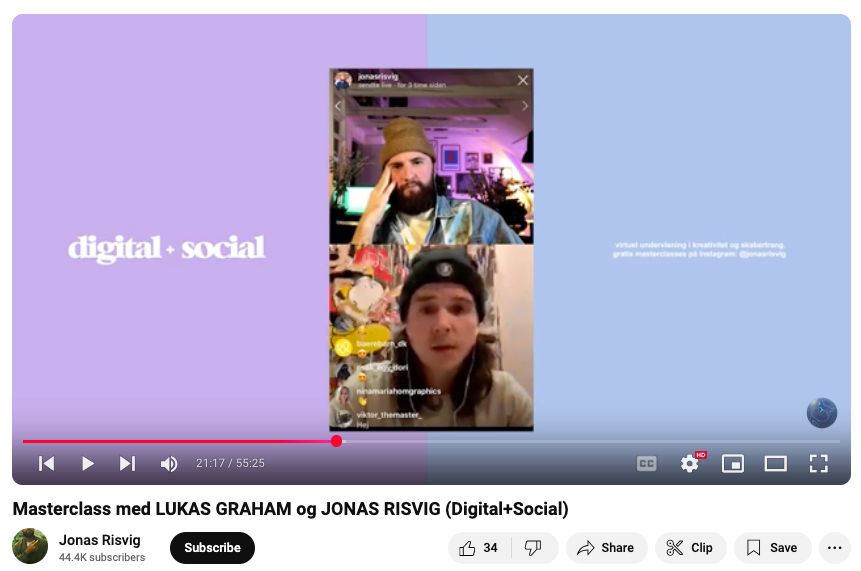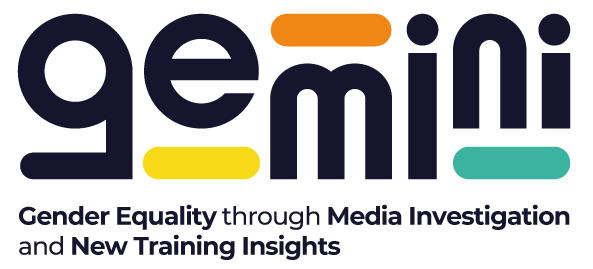Addressing Danish young adults through YouTube
Knowledge mining of Risvig’s Masterclass through Microsoft Copilot
This GEMINI Short presents an innovative AI-approach to understanding media production and online available reflections of creativity. Below, we present how we have analysed a larger dataset about the Danish creative Jonas Risvig through knowledge mining the material in Microsoft Copilot. This prompt session is part of a larger research project about using digital methods to comprehend contemporary discourses around media production.
By Kim Toft Hansen, January 10 2025
The Danish director and screenwriter Jonas Risvig has become a dominant voice for Danish young adults. His approach to young adults invites people into a perspective that addresses teenagers and young people at eye level. Risvig not only establishes a specific kind of credibility and authenticity in his productions through involvement of the cast in almost any decision; he appears to have a more general and widespread interest in uplifting a young generation through creativity in almost any popular form.
Four years ago, during the global pandemic, Risvig broke through with his YouTube series Centrum (2020), a series with a vast amount of celebrity cameos and an innovative approach to creating young adult content at a time when we were talking more about social distance that social cohesion. Quickly, this established Risvig as a convincing voice among young adults (and among adults with an interest in a side-stage view into what goes on in the mysterious minds of teenagers).
At this time, Jonas Risvig also presented his Masterclass session Social+Digital (2020) through YouTube, a session in which he invited a long list of celebrities into an online space where they would share thoughts and experience about creativity and building a career in cultural industries. The first guest was the Danish internationally famous actor Axel Høgh (Ivar the Boneless from the series Vikings), but Risvig involved a wide range of celebrities, including the previous Danish prime minister, several actors and musicians, and other public voices, to share ideas about the present situation as well as breaking through in media industries.
The complete Masterclass sessions consist of no less that 2,600 minutes of material, which is a vast amount of reflective material guided towards young adults about staying creative and understanding the media industries. At a time when new digital AI-driven methods are on the rise, such a vast amount of data suggests a situation where it is possible to consider this material through other means than traditional watching and annotating online material, including various digital methods.

Using the Masterclass in AI-driven analysis
Jonas Risvig has kindly allowed GEMINI to download and data process all material from his YouTube channel for research purposes. In collaboration with the digital data and methods laboratory CALDISS at Aalborg University, GEMINI has worked with Risvig’s YouTube channel (among other data sources) for an upcoming GEMINI research publication. For this publication, GEMINI has tested the capabilities of Microsoft CoPilot for what has been dubbed ‘knowledge mining’, i.e. a planned way to prompt engineer and data process an amount of data through a ‘conversation’ with an AI-chatbot.
While many generative AI-platforms have become decidedly popular, Aalborg University has a data processing agreement with Microsoft, which means that researchers using Copilot through the AAU domain may use Copilot to process copyrighted material, since the agreement ensures that we may “enter a secure environment with commercial data protection […] in a closed prompt where the answers are not stored or used to train the model.” Based on this, it was possible to reach an agreement with Risvig and prompt an analysis of the complete dataset based on the Masterclass sessions (downloaded and digitally transcribed by Matias Kokholm Appel from CALDISS at AAU).
The complete prompt session is the ‘raw’ prompt session in which we go through a carefully planned conversation with Copilot based on the uploaded complete Masterclass dataset. The knowledge mining process includes giving the chatbot specific instructions, giving the chatbot a specific profile, making sure that the chatbot knows the theoretical basis from which to analyse the material, and testing the result through quote confirmation from the material. While there are certainly some issues in processing data like this (including the danger of hallucinations and the issues with chatbots’ so-called confirmation bias), the prompt session successfully reached a condensed summary of the complete material. Though knowledge mining through Copilot may still have its flaws, this method presents an opportunity to reopen the methodology referred to as ‘desktop production studies’ (see our research report for a description of this method) and facilitate an innovative way to download and process online data about media production.

The text below presents the complete prompt session that also includes deeper knowledge about different perspectives from the Masterclass material. However, it is possible, from this, to distil a short and comprehensive summary of what goes on in the 2,600 minutes of conversation:
“The text explores several key themes, including personal growth and career development, creative processes and philosophies, industry insights and challenges, advice for aspiring creatives, and personal reflections and anecdotes. Personal growth and career development are highlighted through stories of overcoming challenges and societal norms to pursue passions, emphasizing perseverance, resilience, and continuous learning. Creative processes and philosophies focus on authenticity, collaboration, and adaptability, with creatives discussing how their personal experiences and emotions influence their work. Industry insights reveal the complexities of the creative industry, including financial instability and the need for resilience.
The impact of social media and digital platforms on career development is also explored, along with the importance of networking and building relationships. Advice for aspiring creatives includes encouragement to pursue passions, stay true to oneself, and continuously improve, with tips on gaining experience, handling rejection, and maintaining motivation. Personal reflections and anecdotes offer insights into the emotional and psychological aspects of creative work, discussing the influence of upbringing, environment, and personal heroes. Overall, the text emphasizes the multifaceted nature of creative careers, highlighting the importance of authenticity, resilience, and continuous learning while providing valuable insights and practical advice for aspiring creatives.”
While the transcription of 2,600 minutes of material is not ‘big data’ as such, this AI-driven approach demonstrates that it is most likely possible to process even larger amounts of data. However, such an approach cannot stand on its own, since it needs contextual, traditional analysis and even a larger digital approach to data visualisation. Even if that is the case, the prompt session reaches a convincing concentrate of material that points in many different directions, most of which may be located through knowledge mining the material. In itself, using AI constructively may be a way to stay creative for researchers too.
Read the complete prompt session here.
The larger and more comprehensive digital and AI-driven analysis and data visualisation of material about and by Jonas Risvig will be available in a future research publication. Stay tuned for more information.


